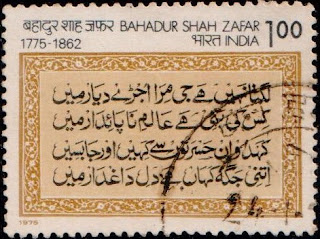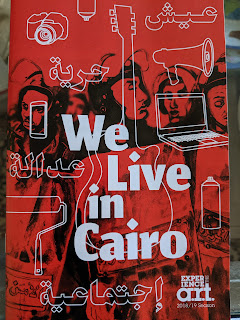Zafar-lagta nahi hai dil mera... explanation
لگتا نہیں ہے دل مرا اجڑے دیار میں
کس کی بنی ہے عالم ناپائیدار میں
lagtā nahīñ hai dil mirā ujḌe dayār meñ
kis kī banī hai ālam-e-nā-pā.edār meñ
alam has two meanings- world and also condition as in mujh pe ghusse ka aalam hai abhi.
paidaar means something durable. adding "na" prefix makes it non-durable.
"bani" means building or maintaining which contrasts nicely with aalam-e-na-paedar.
dil lagna = finding something interesting/ pleasing or got used to/loving something.
My heart does not find any rest or I am not interested in this ruined place. No one has been able to manage to remain in this impermanent world OR who has been able to maintain themselves in this condition of impermanence.
کہہ دو ان حسرتوں سے کہیں اور جا بسیں
اتنی جگہ کہاں ہے دل داغدار میں
kah do in hasratoñ se kahīñ aur jā baseñ
itnī jagah kahāñ hai dil-e-dāġh-dār meñ
hasrat are desires that have remained unfulfilled.
daagh= spots due to wounds or other trauma.
daar is a suffix e.g. Imaan-daar, qarz-daar so daagh-daar is one who posses daagh.
dil-e-daagh-daar= the heart that is wounded/damaged/spotted.
The poet is saying that my heart is full of wounds and I don't have much space left for my unfulfilled desires to be on the same heart so tell them to find abode elsewhere. this can mean two things- either I have lots of desires and they are growing and there is no space for them in the heart or that the wounds in my hearts are growing and I need more space for those daagh and hence it is better if those hasrat find new home.
کانٹوں کو مت نکال چمن سے او باغباں
یہ بھی گلوں کے ساتھ پلے ہیں بہار میں
kāñToñ ko mat nikāl chaman se o bāġhbāñ
ye bhī guloñ ke saath pale haiñ bahār meñ
gul= flower
bāġhbāñ short for baagh-baan which means gardener or incharge of the garden. baan is prefix as in garhi-baan, meher-baan.
chaman= garden
Gardener, don't remove the thorn from the garden. They have developed along with flowers in Spring. it means that flowers and thorns have gone through the same journey so it makes no sense that one is desirable and other is undesirable. or that flowers existence is tied eternally with the thorn so the gardener shouldn't throw them out.
In life, the sadness or setbacks is what makes other parts of lives beautiful but the whole is part of our garden of life. can't imagine a garden with just flowers and no thorns similarly can't imagine a life with just happiness and no sad incidents. or don't cut out the traumatic parts of life, learn to live with them.
بلبل کو باغباں سے نہ صیاد سے گلہ
قسمت میں قید لکھی تھی فصل بہار میں
bulbul ko bāġhbāñ se na sayyād se gila
qismat meñ qaid likkhī thī fasl-e-bahār meñ
bulbul= nightangle
sayyad= bird catcher
gila= complain
fasl-e-bahaar= crop of spring= springtime
This sher builds on the previous sher, the poet is saying that it was in the destiny of the nightingale to be imprisoned in the garden during Springtime as it is her duty to sing songs of love during those time. For this confinement she doesn't blame the gardener or the bird catcher as this is the purpose of her life.
Another way of saying that don't fight your destiny or complain about it, just do your duty. But how do we know what is our purpose in life?
کتنا ہے بد نصیب ظفرؔ دفن کے لیے
دو گز زمین بھی نہ ملی کوئے یار میں
kitnā hai bad-nasīb 'zafar' dafn ke liye
do gaz zamīn bhī na milī kū-e-yār meñ
bad-naseeb= bad luck or unfortunate. you can add the prefix "bud" to make anything bad or "khush" to make it good e.g. badboo (bad smell), khush-boo (good smell).
dafn= burial
gaz= a unit of measure for length, yard.
ku-e-yaar= ku is short for kucha which mean lane, so lane of the friend.
How unfortunate Zafar (zafar also means victory) is that for burial I am not even able to find two yard land in the lane of the beloved. A feeling of eternal separation or loss that even after death I am separated from my beloved or that death has separated me from my beloved that now I am unable to find a piece of land close to her.


Comments